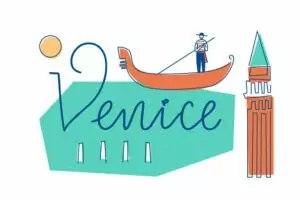When you’re learning Italian, mastering greetings is your first real step into engaging conversations with locals. “Come sta?” may be your go-to, but Italians have a rich palette of expressions to enquire about someone’s well-being. Knowing which one to use can be the difference between a short exchange and a heartfelt conversation.

✅ AI Essay Writer ✅ AI Detector ✅ Plagchecker ✅ Paraphraser
✅ Summarizer ✅ Citation Generator
Italians are known for their expressive communication, so using the right phrase to ask “How are you?” is crucial. It can transform a simple greeting into a meaningful interaction. This guide will walk you through seven authentic ways to ask “How are you?” in Italian, plus a colloquial bonus, complete with examples of when and how to use them.
“Come sta?” : The Classical Formal Italian “How Are You”
“Come sta?” is the bread and butter of Italian greetings. It’s formal and universally appropriate, especially when you’re not very familiar with the person you’re speaking to.
| Come sta? | How are you? | KOH-meh stah? | 🌞”Buongiorno, signore. Come sta?” (Good morning, sir. How are you?) 📚”Incontro il mio professore. Come sta?” (Meeting my professor. How are you?) 🤝”Parlando con un cliente: Come sta?” (Speaking with a client: How are you?) |
“Come stai?” : The Classical Informal Italian “How Are You”
Switch to “Come stai?” when you’re on friendly terms. This informal version is perfect for a relaxed chat with someone you know well.
| Come stai? | How are you? | KOH-meh sty? | 😊”Ciao amico, come stai?” (Hi friend, how are you?) ⚽”Dopo la partita di calcio: Come stai?” (After the soccer game: How are you?) 👨👩👧👦”A un familiare: Come stai oggi?” (To a family member: How are you today?) |
“Come va?” : The Friendly “How Are You”
“Come va?” is akin to “How’s it going?” and is used among friends and acquaintances to convey a sense of genuine interest in a person’s life.
| Come va? | How’s it going? | KOH-meh vah? | ☕”Ci incontriamo per un caffè, come va?” (We meet for coffee, how’s it going?) 🤗”Vedendo un amico dopo tanto tempo: Come va?” (Seeing a friend after a long time: How’s it going?) 🏋️♂️”In palestra con un collega: Come va?” (At the gym with a colleague: How’s it going?) |
“Tutto bene?” : The Short Italian “How Are You”
“Tutto bene?” is the equivalent of “All good?” It’s quick and expects a concise reply, often used in passing or when there’s little time for a chat.
| Tutto bene? | All good? | TOOT-toh beh-neh? | 🚶♂️”Incontrandosi per strada: Tutto bene?” (Meeting on the street: All good?) 💼”Quando vedi un collega al lavoro: Tutto bene?” (When you see a colleague at work: All good?) 🏘️”Un vicino di casa che sembra preoccupato: Tutto bene?” (A neighbor who seems worried: All good?) |
“Come si sente?” : The Deep Italian “How Are You”
Use “Come si sente?” when addressing someone with whom you’re not intimate but know they’ve had a tough time, perhaps health-wise.
| Come si sente? | How do you feel? | KOH-meh see SEN-teh? | 🤒”Dopo una malattia: Come si sente?” (After an illness: How do you feel?) 👩💼”Ad un collega che è tornato al lavoro: Come si sente?” (To a colleague who has returned to work: How do you feel?) 👵”Parlando con un conoscente anziano: Come si sente oggi?” (Speaking with an elderly acquaintance: How do you feel today?) |
“Come ti senti?” : The Deep and Friendly “How Are You”
This is the informal “How do you feel?” reserved for friends and family, especially if they’ve been ill or down.
| Come ti senti? | How do you feel? | KOH-meh tee SEN-tee? | 🛌”A un amico che era malato: Come ti senti?” (To a friend who was sick: How do you feel?) 💆♂️”Se il tuo partner è stressato: Come ti senti?” (If your partner is stressed: How do you feel?) 🎒”Al tuo bambino dopo la sua prima giornata di scuola: Come ti senti?” (To your child after their first day of school: How do you feel?) |
“Va meglio?” : The ‘Follow-up’ “How Are You”
“Va meglio?” is used when following up with someone on their recovery or situation. It can be formal or informal based on the context.
| Va meglio? | Are you feeling better? | vah MEH-lyoh? | 🤧”Dopo aver sentito che erano malati: Va meglio?” (After hearing they were sick: Are you feeling better?) 😟”Vedendo un amico dopo un periodo difficile: Va meglio?” (Seeing a friend after a tough period: Are you feeling better?) 🙇♂️”Al lavoro, a un collega che aveva problemi personali: Va meglio?” (At work, to a colleague who had personal problems: Are you feeling better?) |
“Come butta?” The Colloquial “How Are You”
“Come butta?” is very informal and typically regional. It’s like saying, “What’s up?” and is used in very casual or familiar settings.
| Come butta? | What’s up? | KOH-meh BOOT-tah? | 🍻”Con vecchi amici al bar: Come butta?” (With old friends at the bar: What’s up?) 👋”Incontrando il tuo vicino giovane e amichevole: Come butta?” (Meeting your young and friendly neighbor: What’s up?) 🎉”A una festa con persone della tua età: Come butta?” (At a party with people your age: What’s up?) |
Understanding these variations will not only make you sound more like a local but also show that you care about the person you’re speaking with on a deeper level. Italians appreciate when you make the effort to go beyond the basics, and choosing the right “How are you?” can open up doors to richer, more authentic conversations.
FAQ
Follow us on Reddit for more insights and updates.





Comments (0)
Welcome to A*Help comments!
We’re all about debate and discussion at A*Help.
We value the diverse opinions of users, so you may find points of view that you don’t agree with. And that’s cool. However, there are certain things we’re not OK with: attempts to manipulate our data in any way, for example, or the posting of discriminative, offensive, hateful, or disparaging material.